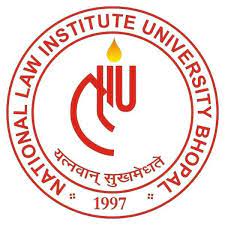
(1).
About MBA and Law School
In
India, pursuing an MBA
(Master of Business Administration)
or attending law school are both
popular options for higher education and career advancement. Here are some key
points to consider about MBA and law school in India:
(A). MBA
(1).
Specializations
MBA
programs in India offer a range of specializations, including finance, marketing, human
resources, operations, international
business, and
more. Choose a specialization that aligns with your interests and career goals.
(2).
Entrance Exams
Many
MBA programs require entrance exams such as CAT
(Common Admission Test),
XAT
(Xavier Aptitude Test),
MAT
(Management Aptitude Test),
or GMAT (Graduate Management Admission
Test). Prepare for these exams to secure admission to a reputable MBA
program.
(3).
Recognized Institutes
There
are numerous prestigious institutes in India offering MBA programs, such as the
Indian Institutes of Management (IIMs), XLRI, FMS, and many others. These institutes
are highly regarded and can enhance your career prospects.
(4).
Networking and Placements
MBA
programs often provide opportunities for networking with industry professionals
and have robust placement cells to help students secure internships and job
placements.
(5).
Entrepreneurial Opportunities
MBA
programs in India also emphasize entrepreneurship, offering incubation centers
and courses to foster the development of business ideas and start-ups.
(B). Law School
(1).
Integrated Programs
Law
schools in India often offer integrated programs such as B.A.
LL.B., B.Com.
LL.B., or B.B.A.
LL.B., which
combines an undergraduate degree with a law degree. These programs typically
span five years.
(2).
Entrance Exams
Law
school admissions are typically based on entrance exams such as CLAT (Common Law Admission Test), AILET
(All India Law Entrance Test), or LSAT (Law School Admission Test). Prepare
for these exams to secure admission to reputed law schools.
(3).
Bar Council of India
If
you wish to practice law in India, after completing law school, you must clear
the Bar Council of India's exam and register with the respective
State Bar Council. This step is essential to become a recognized advocate and
practicing law.
(4).
Specializations
Law
schools offer various specializations, including corporate law, criminal law, constitutional law, intellectual property
law, and more. Choose a specialization based on your interests and career
aspirations.
(5).
Advocacy and Legal Practice
Law
school education in India focuses on legal theory, research, and practical
training in advocacy and legal practice. Moot court competitions and
internships play a crucial role in developing practical skills.
(C).
Financial Considerations
Both
MBA and law school can involve
significant financial investment. The fees vary depending on the institution and program. Scholarships, fellowships, and loans
may be available to support your education. Consider the potential return on
investment in terms of future career opportunities and earning potential.
Ultimately,
the choice between pursuing an MBA or
attending law school in India depends on your interests, career goals, and personal circumstances. Carefully
evaluate the curriculum, the reputation of the institutions, placement records,
and alumni networks to make an informed decision that aligns with your
aspirations.
(2).
Factors to Consider MBA v/s Law School
In India, the decision between pursuing an MBA or attending law school follows a similar framework as in other countries. However, there are a few additional factors to consider when comparing MBA and law school options in India:
| Factor | Description |
| Recognition and Accreditation | In India, it is crucial to choose an MBA program or law school that is recognized and accredited by relevant regulatory bodies such as the All India Council for Technical Education (AICTE) for MBA programs and the Bar Council of India (BCI) for law schools. Ensure that the institutions you are considering have the necessary approvals and affiliations. |
| Specializations and Focus | MBA programs in India often offer various specializations such as finance, marketing, human resources, operations, and entrepreneurship. Consider your interests and career goals to determine which specialization aligns best with your aspirations. Similarly, law schools in India may offer different areas of specialization, such as corporate law, criminal law, intellectual property law, or constitutional law. Choose a specialization that matches your interests and desired legal career path. |
| Entrance Exams | Both MBA programs and law schools in India typically require entrance exams for admission. The Common Admission Test (CAT), Management Aptitude Test (MAT), or Xavier Aptitude Test (XAT) are commonly accepted for MBA programs, while the Common Law Admission Test (CLAT) is the standard entrance exam for most law schools. Be aware of the specific entrance exams required for your chosen programs and prepare accordingly. |
| Job Market and Opportunities | Research the current job market and career opportunities for MBA graduates and law school graduates in India. Consider factors such as demand, salary prospects, and the industry's growth trajectory for each field. Look at the employment statistics and placement records of the institutions you are considering to gauge their effectiveness in providing job opportunities. |
| Legal Practice and Bar Council | If you plan to practice law in India, it is crucial to understand the requirements set by the Bar Council of India. After completing law school, you will need to clear the Bar Council's examination and register with the Bar Council to practice as an advocate. Ensure that the law school you choose adequately prepares you for these requirements. |
| Professional Networks | Consider the networking opportunities and alumni networks associated with MBA programs and law schools in India. Strong alumni networks can provide valuable connections, mentorship, and career support. Research the reputation and reach of the alumni networks of the institutions you are considering. |
Remember,
it is essential to conduct thorough research, evaluate your career goals, and
assess the specific factors mentioned above when comparing MBA and law school
options in India. Seek advice from professionals,
alumni, and current students to gain insights into the programs and make an
informed decision based on your individual circumstances and aspirations.
(3).
Top Law School
In India, there are several prestigious law schools that are recognized for their academic excellence and reputation. While individual preferences and rankings may vary, here are some of the top law schools in India:
These
law schools are renowned for their rigorous academic programs, experienced
faculty, comprehensive curriculum, research opportunities, moot court
activities, and overall contribution to legal education in India.
It's
important to note that the field of law is highly competitive, and admission to
these top law schools is based on merit and performance in national-level
entrance exams such as CLAT (Common Law
Admission Test), AILET (All India Law Entrance Test), or LSAT (Law School
Admission Test). Each law school has its own specific admission criteria
and processes.
When
considering law schools, it's advisable to research the programs, faculty expertise, infrastructure, alumni network, and placement records of the institutions.
Additionally, factors such as location, specialization options, and
extracurricular activities should also be taken into account to find the best
fit for your interests and aspirations.
(4).
MBA vs. Law School: Which is the Better Investment?
Deciding
between pursuing an MBA (Master of Business Administration) or attending law
school in India depends on your career
goals, interests, and personal strengths. Both paths can lead to rewarding
careers, but they have distinct differences. Here are a few elements to recall
whilst evaluating the two:
(1).
Career Goals
Assess
your long-term career aspirations. If you are inclined towards a career in
business, management, or entrepreneurship, an MBA might be more suitable. On
the other hand, if you have a passion for law,
justice, or advocacy, law school would align better with your goals.
(2).
Job Market Demand
Consider
the demand for professionals in each field. In recent years, India has seen an
increasing demand for skilled business professionals as the economy grows. MBA
graduates often find opportunities in consulting, finance, marketing, and general management roles. In the legal
field, demand varies across different legal specializations and overall market
conditions.
(3).
Return on Investment (ROI)
Evaluate
the financial aspect of each option. MBA programs can be costly, but the
potential for higher salaries in the business world can help you recoup your
investment over time. Legal education can
also be expensive, and law graduates may have varying income prospects
depending on their specialization, experience, and the law firms they join.
(4).
Personal Interests and Strengths
Consider
your interests and strengths when choosing between the two paths. If you enjoy analyzing complex business problems,
developing strategies, and working in a dynamic corporate environment, an
MBA might be a better fit. Conversely, if you have a passion for legal
research, and argumentation, and enjoy advocating for justice, law school could
be the right choice.
(5).
Duration of Study
The
duration of each program differs. An MBA typically takes two years to complete,
while a law degree usually takes three years. This difference might influence
your decision based on your willingness to commit to a longer or shorter period
of study.
(6).
Networking and Alumni Support
Consider
the networking opportunities and alumni networks associated with MBA programs
and law schools. Both can provide valuable
connections, mentorship, and career
support. Evaluate the strength of the alumni networks of the institutions
you are considering and how they can assist you in your career progression.
Conclusion
Note
Ultimately,
there is no definitive answer as to which option is the better investment since
it depends on individual circumstances and preferences. It's essential to
carefully assess your own career goals, interests, financial considerations,
and the job market before making a decision. Consider seeking advice from
professionals in both fields, speaking to alumni, and researching specific
programs to gain more insights into the opportunities available and the
potential return on investment in India.
Also Read:
The
Importance of Networking in MBA Programs
The
Benefits of MBA Specializations in Technology, Healthcare, and Sustainability
The
Top MBA Programs for Specializations in Marketing, Finance, and Operations
How
to Become a Successful Entrepreneur: Lessons from Top MBA Programs
Related News
View AllRelated Articles
View AllTrending Articles
View All-
UPMSP 2025 Exam Schedule OUT: Download Class 10 & 12 Time Table
Dec, 13, 2024 Read More -
UK Board Date Sheet 2025 Out: Check Uttarakhand Class 10, 12 Exam Dates
Dec, 12, 2024 Read More -
Top 10 Indian Colleges in QS World University Sustainability Rankings 2025
Dec, 12, 2024 Read More -
AIBE XIX 2024: Dress Code, Important Guidelines & Dos and Don’ts
Dec, 11, 2024 Read More -
HBSE 2025 Exam Dates Out: Download HBSE 10th, 12th Date Sheet PDF
Dec, 10, 2024 Read More -
MAT Exam 2024: PBT, CBT, IBT Schedule, Syllabus, Eligibility, Pattern, Result & Cut Off Details
Dec, 03, 2024 Read More -
CBSE Class 12 Marking Scheme 2025: Grading System, CGPA to Percentage Calculator
Nov, 27, 2024 Read More -
CBSE Class 12 Previous Year Question Papers 2024-25: Download PDFs, Exam Date, Marking Scheme
Nov, 26, 2024 Read More -
CBSE Class 12 Date Sheet 2025 Released: Download CBSE Board 12th Time Table Stream-wise PDF Here
Nov, 26, 2024 Read More -
NIRF Ranking 2024 for Top Management Colleges: List of Top Management Institutes in India
Aug, 21, 2024 Read More
Trending News
View All-
AIBE XIX (19) 2024: Check Exam Day Guidelines, Reporting Time & Live Updates
Dec, 21, 2024 Read More -
UGC NET 2024: दिसंबर सेशन की परीक्षा डेट घोषित, यहां देखें पूरी जानकारी
Dec, 21, 2024 Read More -
VITREE 2025 Results Out: Get Your Score Details Here
Dec, 21, 2024 Read More -
NTA to Discontinue Recruitment Exam Conduct from Next Session
Dec, 21, 2024 Read More -
MICAT 2025 Results Declared: Download Scorecard Now
Dec, 21, 2024 Read More -
TS SSC 2025 Exam Dates Released: Download Subject-wise Time Table Here
Dec, 21, 2024 Read More -
Hurry! CMAT 2025 Registration Closes on December 25 - Apply Now
Dec, 21, 2024 Read More -
Gujarat NEET PG 2024 Round 2 Merit List Released: Get Allocation PDF
Dec, 21, 2024 Read More -
AIBE 19 परीक्षा 2024: महत्वपूर्ण दिशा-निर्देश और क्या करें क्या न करें
Dec, 21, 2024 Read More -
अगले साल NTA में होंगे बड़े बदलाव: कौन सी परीक्षाएं आयोजित करेगी एजेंसी?
Dec, 20, 2024 Read More
Related Universities
View All-
Faculty of Management Studies (FMS), New Delhi
-
Xavier School of Management, (XLRI) Jharkhand
-
The West Bengal National University of Juridical Science
-
National Academy of Legal Studies & Research University
-
National Law University, Jodhpur
-
The Rajiv Gandhi National University of Law
-
National law School of India University, Bengaluru
-
National Law Institute University, Bhopal
-
Gujarat National Law University, Gandhinagar
-
National Law University, Odisha











 back
back